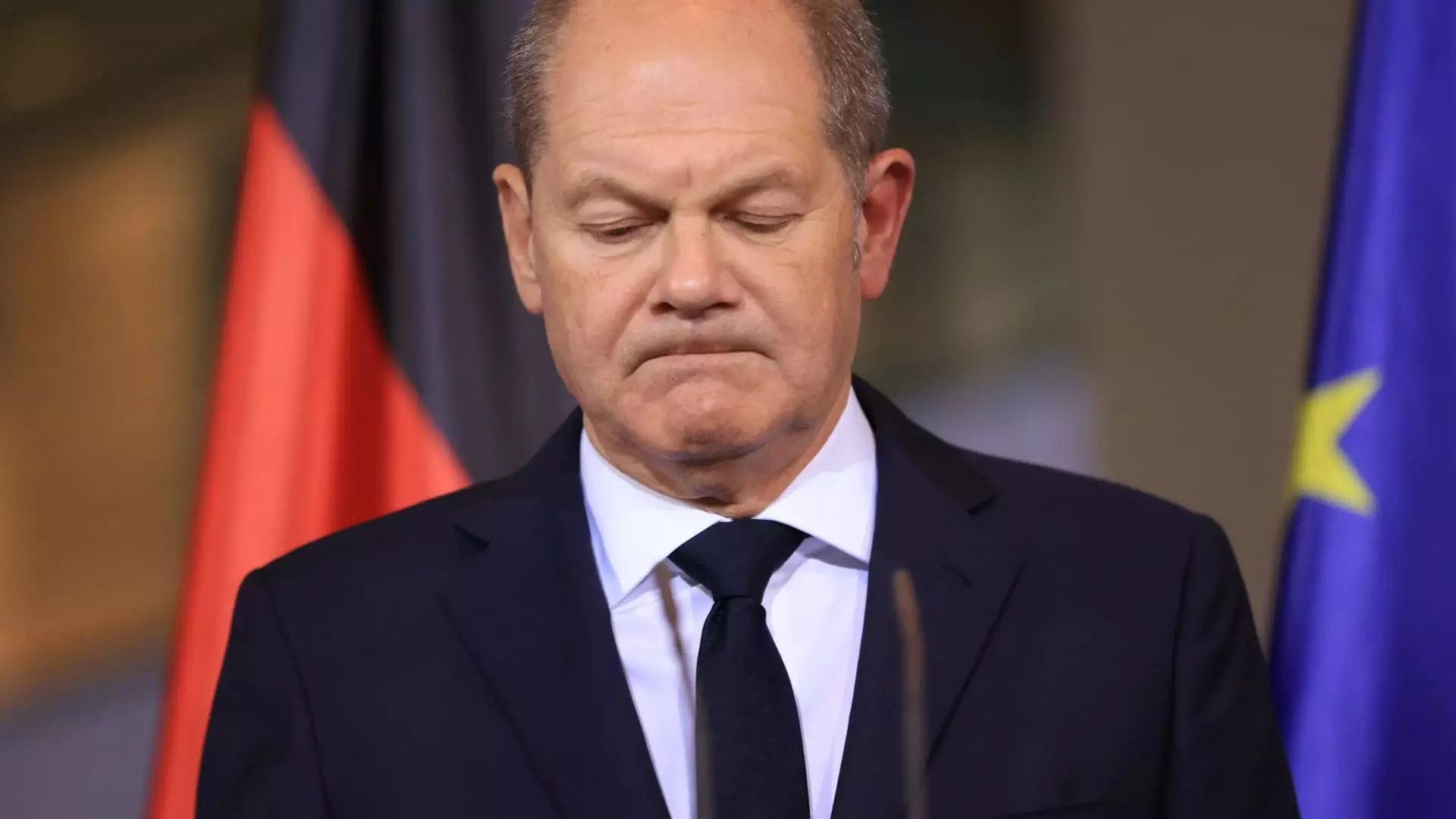The outcome of the recent U.S. presidential election, with Donald Trump returning to the political forefront, raises significant concerns for Germany’s economic landscape. While Germany has been weathering economic challenges, the potential impact of Trump’s administration could exacerbate existing issues and introduce new uncertainties. The country has narrowly avoided a technical recession, but the outlook remains bleak as key economic indicators signal slow growth. This article explores the ramifications of Trump’s presidency on the German economy and the necessary responses that could aid in navigating these turbulent waters.
Germany’s economy is a critical player in the European Union, largely driven by its robust export sector. Recent data indicates that the country experienced a minor GDP growth of 0.2% in the third quarter, following a contraction of 0.3% in the preceding quarter. Despite this slight recovery, the German economy ministry’s projections suggest a contraction for the year, highlighting the precarious state of economic affairs. Various indicators, such as the composite PMI, depict a contractionary environment, demonstrating that the economy is far from a stable footing.
The challenges facing Germany are compounded by a series of structural reforms that are overdue. As the economic landscape shifts, fueled by global uncertainties and domestic pressures, the country must address these weaknesses to rejuvenate growth. With the election of Trump, these challenges have the potential to multiply, calling for immediate attention and strategic planning.
Trump’s economic policies are characterized by a protectionist approach that primarily emphasizes tariffs and trade restrictions. Germany, being an export-oriented economy, would be significantly impacted by the imposition of tariffs on a broad array of imports. The U.S. has been an increasingly important trading partner for Germany, overtaking China earlier this year, which raises further concerns in the event of escalating trade disputes.
Economic experts warn that should Trump follow through on proposals for blanket tariffs of 10% to 20%, German exporters could face punishing losses. The ifo economic institute recently warned that trunking exports to the U.S. could lead to substantial drops, with estimates suggesting a potential loss of EUR 33 billion. Key sectors such as automotive and chemicals, which have historically been pillars of the German economy, would be particularly vulnerable. The implications of such policies are grave—escalating trade tensions could lead to long-lasting economic harm.
In light of these potential hurdles, Germany must recalibrate its economic strategies. Experts like Lisandra Flach from ifo have articulated the necessity for the country — and the European Union at large — to adopt proactive measures. Strengthening the EU services market and developing credible retaliatory strategies against the U.S. would be crucial components in mitigating expected fallout from Trump’s tariffs.
Moreover, the political instability in Germany, recently underscored by Chancellor Olaf Scholz’s dismissal of Finance Minister Christian Lindner, complicates the country’s response to these external threats. As the coalition government faces internal strife, the effectiveness of Germany’s economic policy-making is in question. A united front is essential to address challenges posed by external forces.
Beyond economic implications, Trump’s election poses significant foreign policy dilemmas for Germany. The country must navigate the implications of a U.S. administration that may prioritize nationalism over global cooperation. With NATO and EU dynamics increasingly in flux, Germany’s diplomatic efforts must be recalibrated to prepare for potential shifts in alliances and security policies.
As evidenced by recent statements from political leaders like Lindner, there is an understanding that Europe must “stretch out a hand” to facilitate dialogue with the new administration. However, this outreach must be coupled with an acknowledgment of the need for a robust response framework to deal with any trade conflicts that may arise. Germany’s ability to represent its interests effectively on the international stage will be critical in the coming months.
The uncertainties surrounding Trump’s presidency present an array of challenges for Germany as it seeks to stabilize its economy. From potential trade wars to internal political strife, the road ahead is fraught with obstacles that require urgent address. By strengthening regional cooperation and developing a comprehensive strategic plan, Germany can work to safeguard its economic interests while positioning itself to face upcoming challenges head-on. As the global landscape continues to evolve, Germany’s response will be pivotal in shaping both its future and that of the European Union at large.


Leave a Reply